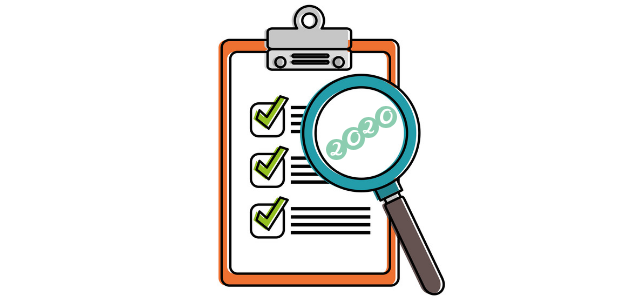Your 2020 year is here, and perhaps so far, not very unusual from all the other New Year’s that you have had? What are you going to do a bit differently this time? Think in the line of managing those financials of yours better. One of the most important things that you can do is to be proactive and get extra money and some savings going this 2020. But, it is not always easy to save for emergencies, the kids’ long list of needs and your different goals, for example. The thing is – you have to begin with what you have available. And the sooner, the better.
Don’t you think it is time to revise your various agreements or current memberships that you have? And, in cases where you can, consider other providers and better-priced offerings instead? This can ensure habits of saving money and be the kickstart of a sustainable, ‘frugal mindset’ and ‘money-saving behaviour’ that you set forth.
Here are five recommendations on how to get a clear picture of the contracts and providers you currently make use of or ‘service’. And, in the process, get your money-saving habits going this year:
1. First off, you need to understand what your financial picture looks like
When last have you properly inspected your bank statements? This entails what comes in (your income) and what deductions go off. For example, your short-term savings (savings fund) or long-term investments (pension fund/annuities). Don’t forget to be strict with your inspection and become aware of any unnecessary deductions that do add up and curb you from saving.
2. Take a good look at current membership costs and cancel some
Now that you have inspected your overall financial picture, it is time to cancel unused subscriptions or memberships that you hardly or NEVER use. This will typically include things like your gym membership, magazine subscriptions or Pay-TV type of contracts/service agreements, for example. You will be amazed by the total amount you can save by NOT having these unnecessary expenses.
3. Revise contracts & consider just-as-good-perhaps-even-better providers
It is important to remember that companies have a competitive environment going and it is only fair that you find providers with the best service, best offerings and best prices. For example, your phone/data contract, medical aid, your car, and house insurance or life insurance and policies. You, therefore, need to do your research well and consider alternatives. These days some professionals can help give you a clear indication of what your needs are and what providers can offer for the same service or plan, but for a whole lot less. Research well, don’t be afraid to ask around and get the support you need to make informed decisions.
4. Save money & tuck it away in a specific fund or savings account
It is always important to ‘pay yourself’ when it comes to your hard-earned money. And, as soon as you get the unnecessary payments out of the way, you can start saving for a change. You don’t have to be too hard on yourself if you start saving only a few bucks at first. Bit by bit you can add to your savings fund. You can start with your emergency fund and add savings as you go or you can add the extra cash in your existing savings fund(s). The biggest goal is to start – it doesn’t matter what the amount is at first.
5. Clear serious debt first & continue with your savings
You have probably asked yourself if you can start saving without clearing excessive debt first? Well, there are many opinions about this and it can confuse you. But, what do you think? Rather clear some excessive debt like unsecured debt (such as your credit and store cards) and then ‘pay yourself’ aka add to your savings? That sounds like a sustainable and good idea. Why not try the snowball method and clear your lowest instalment debt first and move on to the next? You will not only see your debt disappear, but you will also get a sense of achievement and sustain this type of ‘money psychology’ and behaviour.
Inspect your current agreements, subscriptions, memberships and, providers to see where you can save a penny or two. This 2020 year is a good start to get proper financial management going while adding to your savings. Why wait?
